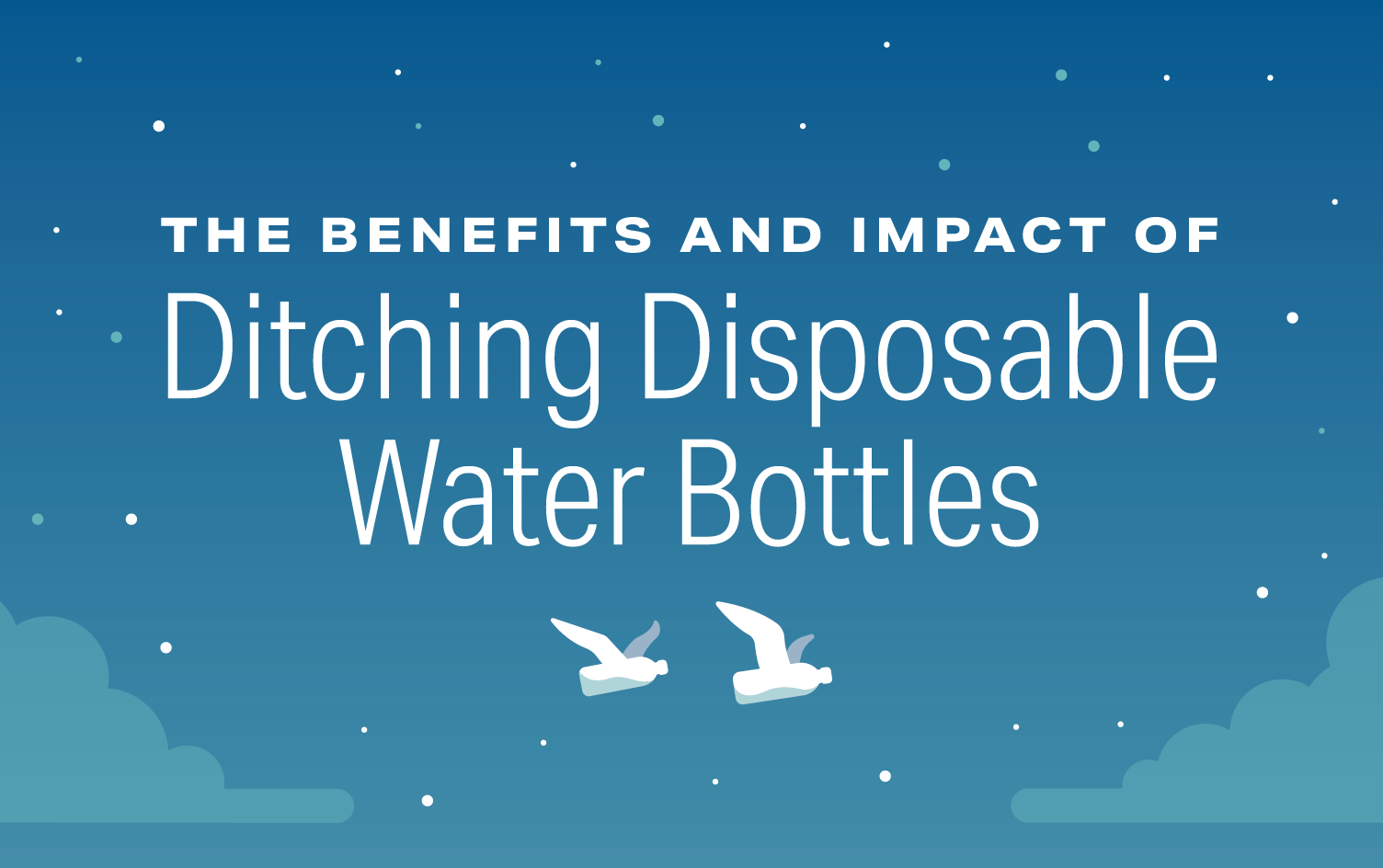When you consider that our bodies are about 60 percent water, it’s clear why H2O is so essential. And the smart way to stay hydrated is to carry a reusable water bottle with you. That way it’s easy — and cheap — to stay hydrated wherever you go.
If you still haven’t bought a reusable bottle, it’s time to make the change. We analyzed the data on hydration and plastic bottled water, and to be honest, it’s pretty shocking. Check out the infographic below to discover how smart hydration is good for your body, your wallet and the environment.






5 Responses
I 100% agree that disposable, single use water bottles gotta go, and for all the benefits and negatives described. One important correction to the claim that plastic bottles decompose – they don’t, EVER. plastics are petrochemical and don’t undergo the biological process of compositing or decomposing. That only happens to natural, organically created substances. Plastics do breakdown, into smaller and smaller particles, which still remains plastic, an an active environmental contaminant forever, there to be eaten grown on and otherwise mess up the earth.
Plastic water bottles – a on one use polluting dead end.
I wish that instead of saying “reduce your exposure to chemicals” it said “reduce your exposure to BPA” or “reduce your exposure to carcinogens” or something similar since the water we are drinking is, itself, a chemical.
I read that reusing plastic water bottles can be bad as well, and they actually take longer to degrade because they are much thicker, which in turn would be equivalent to days of running a 60 watt light bulb.
As far as using resources of drinking water, it doesn’t mater, either way we will be consuming the same amount of water.
The same chemicals are in your reusable bottles only each time you wash it, you release a new layer of them. So you’re out camping and you bottle runs out, I guess you could knock on a neighbors door and ask if you can refill your bottle. But do you really know if the water you are putting in your bottle is contaminated? The bottling companies are heavily regulated on their quality.
Bottom line is there are PROs and CONs either way you go.
But tap water tastes nasty.
Just because it says reusable dosen’t mean it has to be plastic. I carrry a stainless steel reusable water bottle. I’ve had it for years and it goes with me everywhere. It doesn’t add any taste to the water and it can last forever. It can be cleaned and sanitized without any damage. My daughter also carries a glass reusable water bottle. And I know some will say they are heavier then plastic , and that is true but not that much. I’m just trying to say there are alternatives to plastic.